The pandemic making me breathe fears
My PMS rolling down tears
Mayometrium contracting till it hurts
No one to hear my emotional outbursts
The rising stress due to this pandemic leading to excessive symptoms of premenstrual syndrome along with innumerable challenges are being faced by my fellow menstruators.
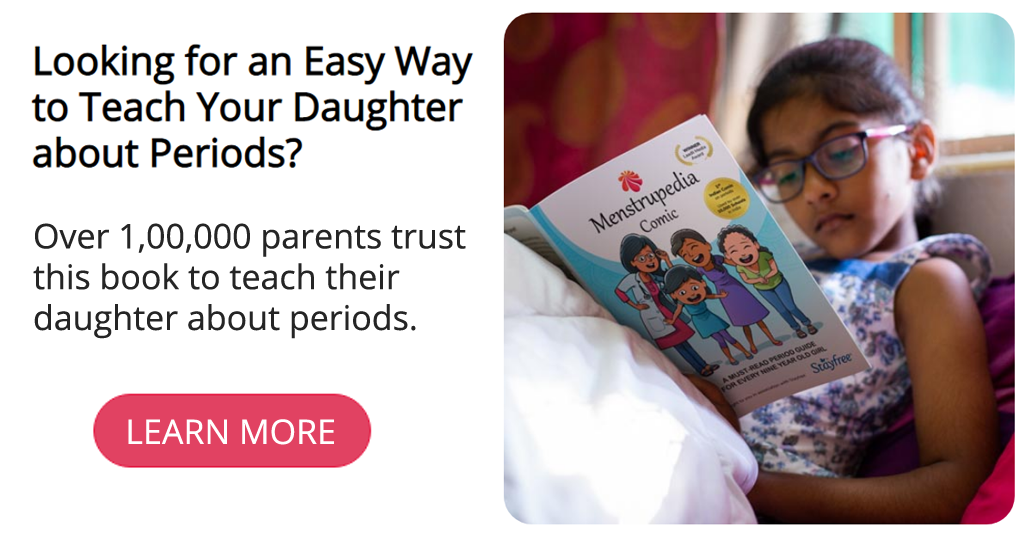
I however have been on the luckier side and the pandemic hasn’t had a negative effect on my periods. Instead, since the college stress is less, my periods have been quite regular for the past 3 months. I’ve been more aware of my pain than before and with the degree of pain before my due date, I can estimate when my periods are most likely to arrive. I’m learning the signs my body provides during my cycle such as fatigue, feeling low, acne on my face, cramps, breast tenderness and more.
I’m also at the start of my journey of using a menstrual cup. It’s been 4 months and I’m not able to do it yet. I won 2 menstrual cups in exciting giveaways on Instagram. This was the best thing that happened to me during the pandemic. I’ve been wanting a cup for a long time but my mother was a bit hesitant. My struggle with the insertion is a little too much and in spite of continuous tries I haven’t been able to do it yet. But like they say, good things take time and persistence and will power can make it happen. If any of you are failing with the menstrual cup, remember that failure is the first step to success. Let’s be positive, keep trying, and one day we’ll be the happiest ones to have nailed it.
I’ve been privileged in various aspects of life, so much so that my personal menstrual health hasn’t been much affected during the pandemic. However I am aware of the challenges other menstruators are facing. The biggest challenge for many is pandemic stress. Being covid positive or having your close ones test positive takes a toll on one’s physical as well as mental health. The scare, the isolation, all adds to it. Lives are dropping like tree leaves falling and the loss of dear ones is truly heartbreaking. The news, the controversies of the government, the protests, social media antics which either support or curse someone; you never know when things might take a turn and backfire. The stress is real and with this amount of uncertainty and negativity it is natural for one’s mental health and physical health to get affected. It’s a vicious cycle where one leads to another.
Menstrual irregularities, missing periods, changes in the flow, increased cramps, increased fatigue, premenstrual syndrome is being faced by many menstruators. Menstrual health is a major indicator of our overall health where any fluctuation is of major concern. Another major problem is the lack of menstrual hygiene supplies. People can’t afford to buy menstrual hygiene products due to the loss of jobs and such. Some can’t access it easily especially in villages due to the lockdown and the shutting down of shops and supermarkets. In spite of menstrual abnormalities, everyone cannot access medical care. Healthcare facilities aren’t affordable and accessible and are stigmatized when it comes to menstruation. Some women are facing more domestic violence by their husbands or in-laws which worsens their menstrual health. Healthcare workers in PPE kits are facing a great challenge to manage menstruation, something that we’ve never done before – we must acknowledge their contributions as corona warriors.
Amongst the grey side of the pandemic, there have been some brighter areas too. Social media has been a major tool to create awareness about menstruation, bust myths, destigmatize and start discussions. There are some wonderful content creators whose content is about menstrual and sexual health. We must check the sources, their qualifications and then trust the information. Being at home has made some of us pay attention to our menstrual health and be more aware of our cycles. The awareness about sustainable menstruation has increased and people are trying out new products. We’re becoming more sensitized to the LGBTQ community and creating safe spaces and are also unlearning and dismantling the idea that menstruation is related to femininity. We are growing as a community.
We’ve also seen how people have joined together to help others in these tough times. Support groups have been formed, organizations are donating menstrual hygiene products, fundraisers are getting organized, with people donating and helping on social media. There’s nothing more human than these small deeds that go a long way.
Stigmas and taboos related to periods have prevailed. Social media has been a contributing force to bust myths and destigmatize periods. However, the recent rumors related to vaccination and menstruation went spreading but thankfully it too was busted in no time. It depends on one’s exposure, engagement and knowledge from verified sources and finally sharing with each other and having open discussions which will help us to eventually destigmatize menstruation. The time is not very far for when we’ll talk about periods at our dinner table just like any other topic as sanitary pad advertisements that too have started showing red as the color of blood instead of blue.
To deal with period woes during the pandemic, let’s detach from the outside world a bit and disconnect from all the negativity. At the same time, let’s work on being informed, practice some relaxation techniques, meditate, exercise, eat healthy, talk to friends, cry, accept whatever you’re feeling and not force yourself to feel anything else. This is your bubble and everything is valid. Let’s pledge to invest in ourselves, be more mindful of our cycles, take utmost care of our menstrual health and hygiene and be kind to our mind and body. Let’s become more aware about menstruation, learn from verified sources, teach others well, and create safe spaces for discussion.
Author: Aashma Surlakar

Aashma Surlakar is a third year medical student at Goa Medical College. Her hobbies include writing essays, poems, reading, acting, elocution and so much more. She is passionate to work in the field of menstrual health and hygiene!
Edited by: Divya Rosaline
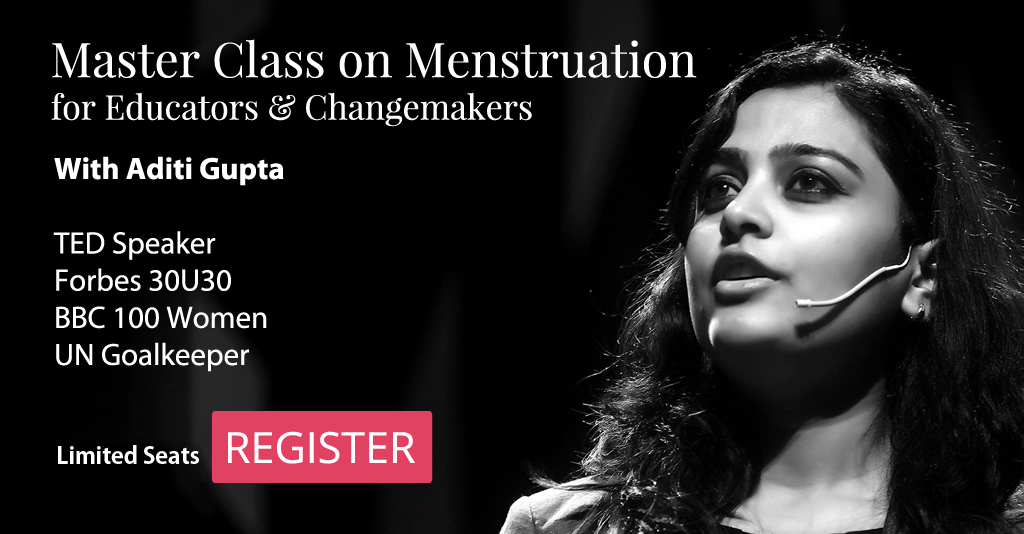


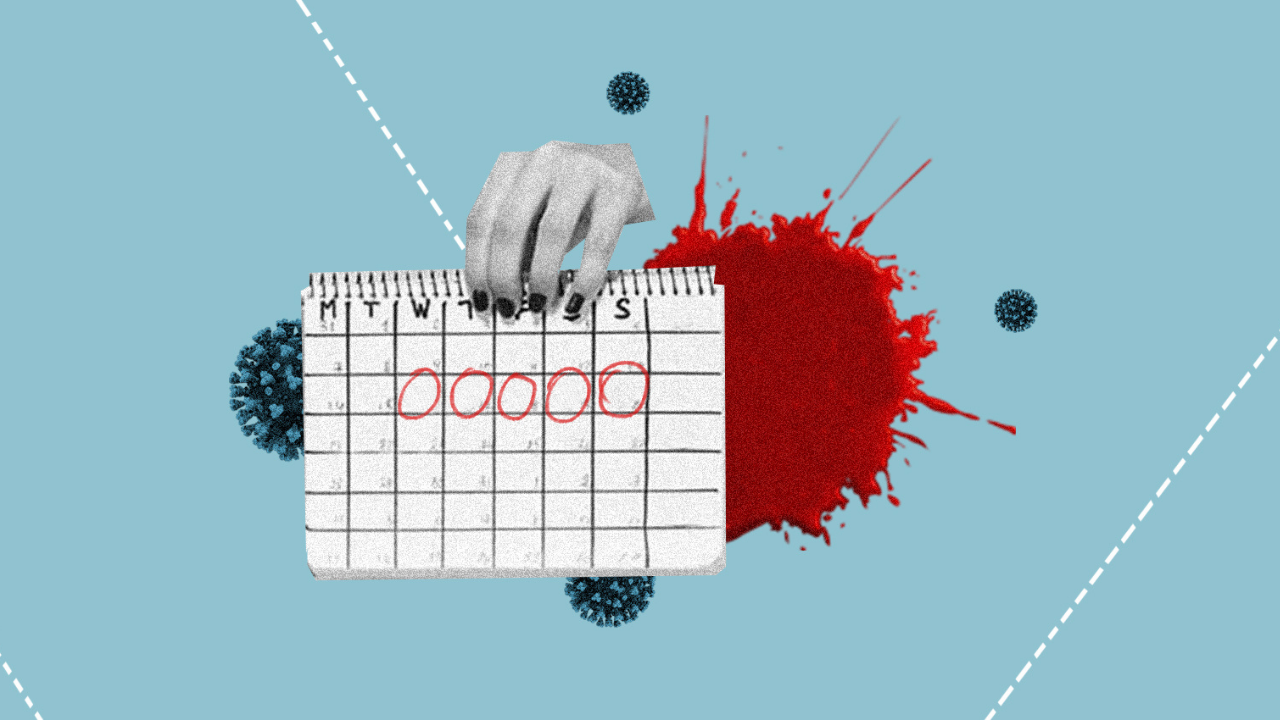
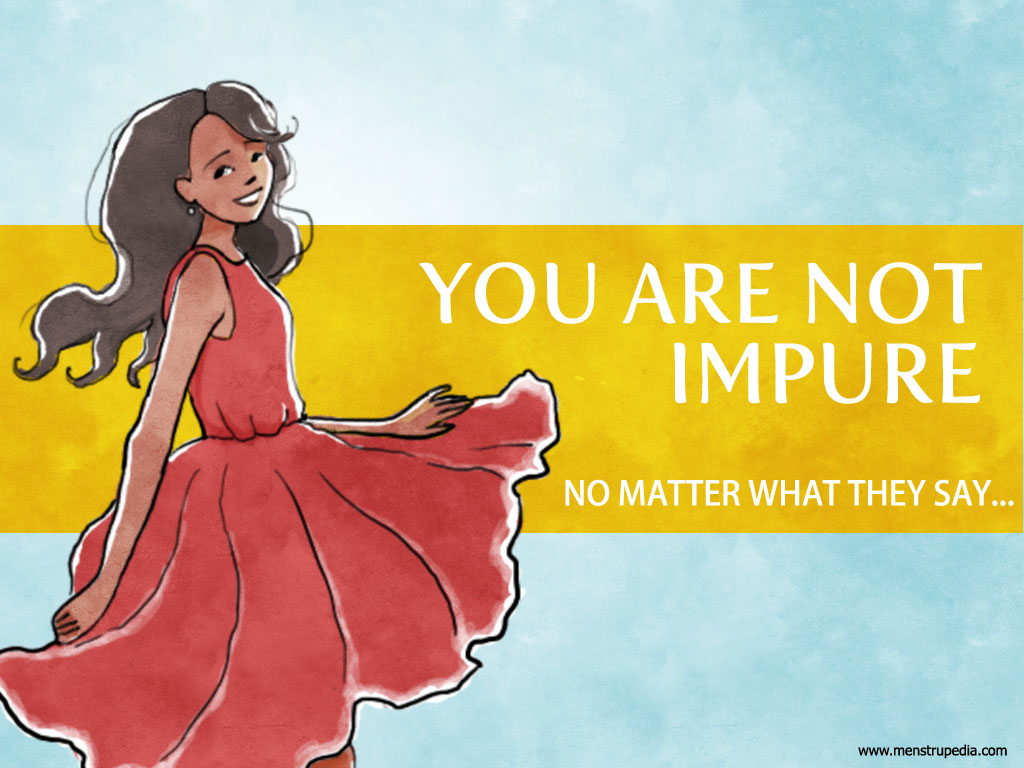
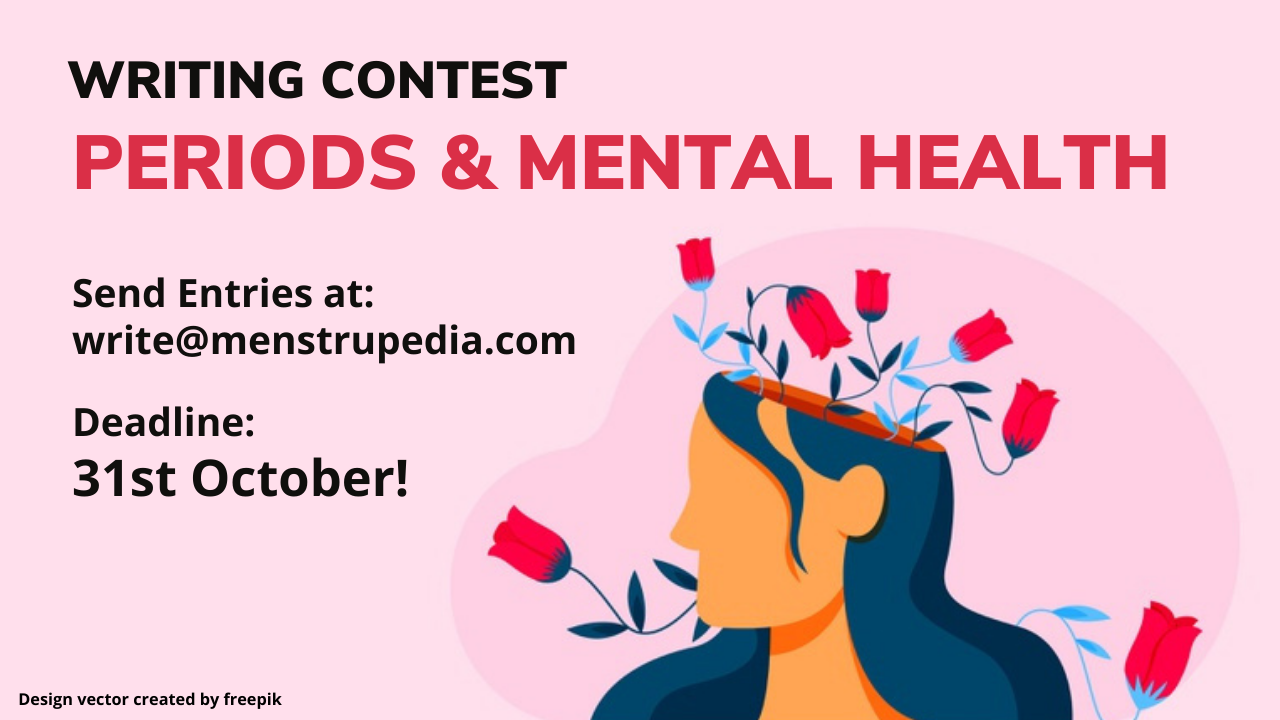
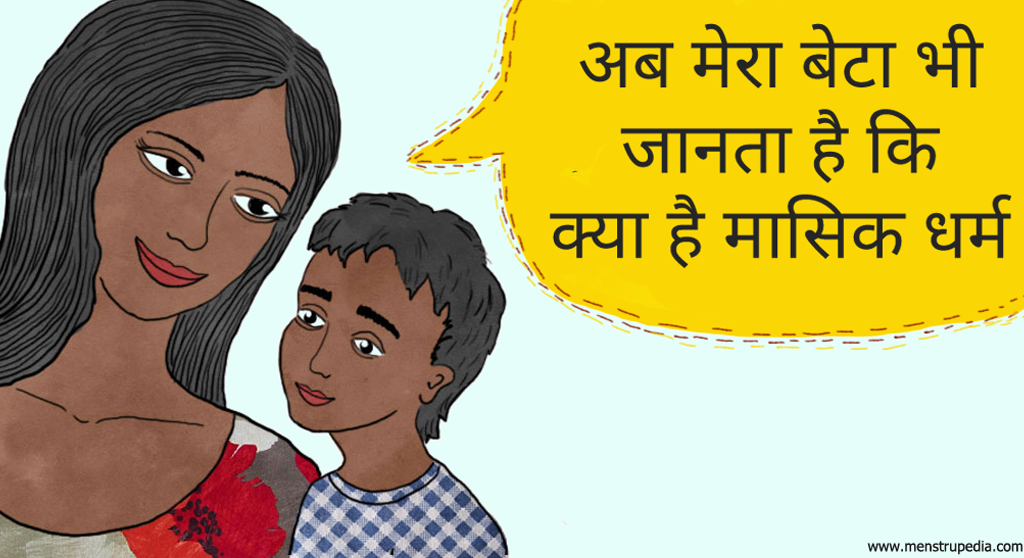
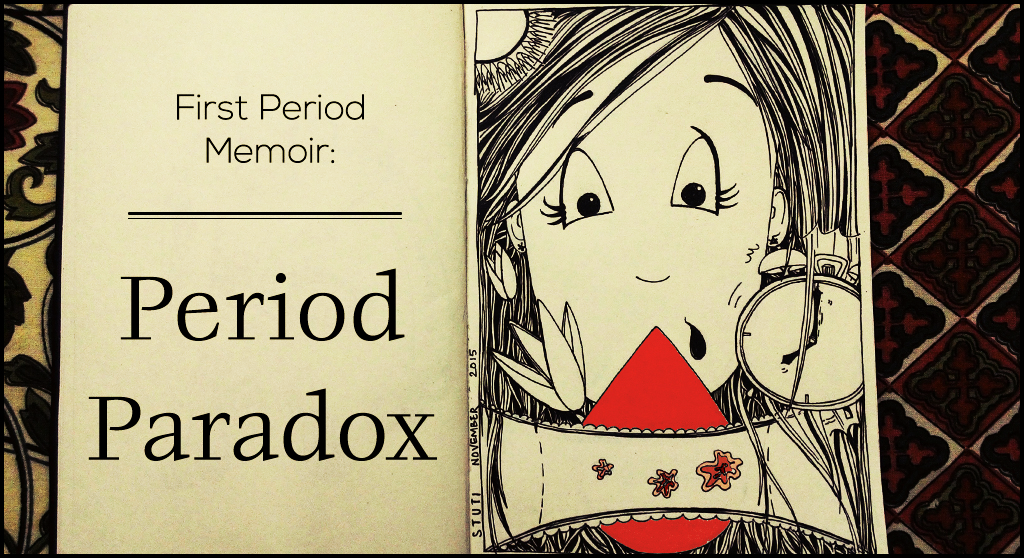
13471 Comments
Add Yours →